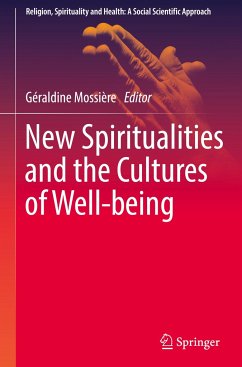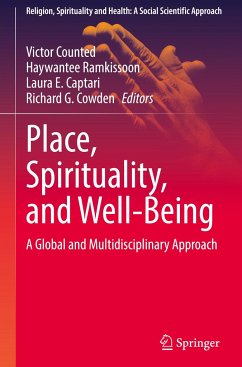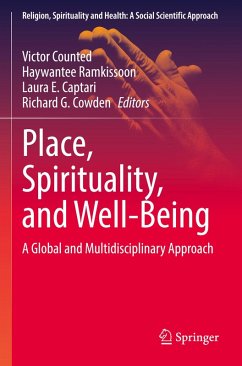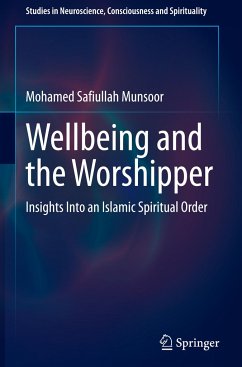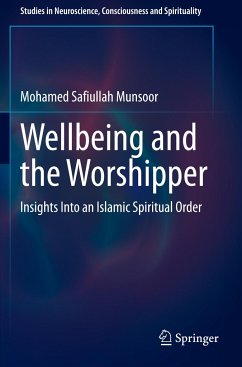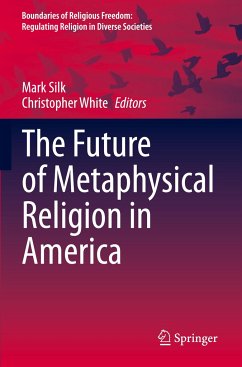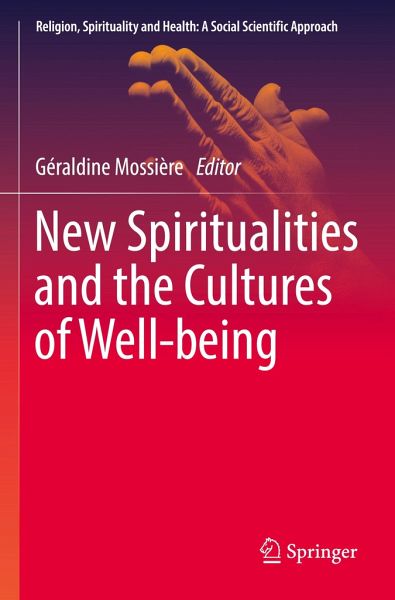
New Spiritualities and the Cultures of Well-being
Versandkostenfrei!
Versandfertig in 6-10 Tagen
113,99 €
inkl. MwSt.

PAYBACK Punkte
57 °P sammeln!
Inspired by the neoliberal paradigm that transposes religious behaviors into a religious marketplace framed by consumerist and capitalist models, this volume draws on ethnographic fieldwork to discuss the assemblage between the well-being trope and the rise of new spiritualities, as well as their deep permeation within mainstream culture. Building on previous literature that addresses the relationship between spirituality, healing and well-being, this text discusses the religious roots of mind-body practices. The contributions offer a critical perspective on the scope, limits and impacts of th...
Inspired by the neoliberal paradigm that transposes religious behaviors into a religious marketplace framed by consumerist and capitalist models, this volume draws on ethnographic fieldwork to discuss the assemblage between the well-being trope and the rise of new spiritualities, as well as their deep permeation within mainstream culture. Building on previous literature that addresses the relationship between spirituality, healing and well-being, this text discusses the religious roots of mind-body practices. The contributions offer a critical perspective on the scope, limits and impacts of the current celebration of spiritualities.
Part I provides theoretical insights for thinking about ways in which the prevalent ethics of well-being reframes subjectivities within the margins of neoliberal order. Part II demonstrates how spiritual economies are promoted, shaped and regulated by institutional forces such as States, law and the labor market. In part III, contributors describein detail how spiritual economies unfold in specific cultural and social settings. The text appeals to students and researchers working on the spirituality and sociology of religion.
Part I provides theoretical insights for thinking about ways in which the prevalent ethics of well-being reframes subjectivities within the margins of neoliberal order. Part II demonstrates how spiritual economies are promoted, shaped and regulated by institutional forces such as States, law and the labor market. In part III, contributors describein detail how spiritual economies unfold in specific cultural and social settings. The text appeals to students and researchers working on the spirituality and sociology of religion.



